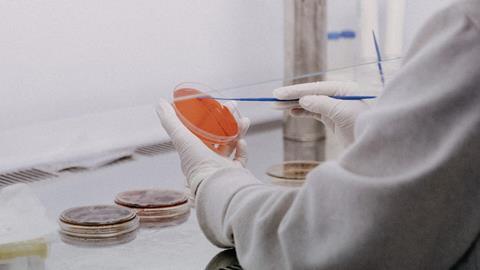John Van Sloten, author of God Speaks Science, looks at why science is one of the Church’s greatest allies. Read his first and second instalments of this mini-series here – ‘Jesus speaks supernovae’ and ‘Does God still bring water from rocks?’
Who first conceived of the physical laws of the Universe? Who wrote the languages of physics, chemistry, mathematics and biology? Who took these laws and languages and spoke the cosmos into being?
Only God could do these things.
It was this belief that led 16th Century astronomer Johannes Kepler to say that (in doing his work as an astronomer) he was thinking God’s thoughts after God.
It is a compelling thought for the rationally minded – that their very way of thinking is wired after God’s. And that their proficiency with the languages of creation is a crucial means by which humanity can come to understand God more. Science mediates God’s creation words. This makes science one of the Church’s greatest allies.
Read more:
Jesus speaks supernovae
Does God still bring water from rocks?
Can a Quantum Physicist really believe in God?
Are there limits to scientific explanations?
Familiarise ourselves with God’s languages
What science does so well is introduce us to the sheer scope of God’s linguistic palette. God speaks gravity, black hole and dark matter; molecule, catalyst and chemical reaction; immune system, neuron and knee. The number of languages God speaks via creation is infinite.
To engage God though creation we need to familiarise ourselves with some of these languages. We need to let science help teach us how to read God’s creation book. By getting a better grasp of the different languages God speaks, we’ll be able to understand more.
For example, one foundational language (or linguistic pattern) that God speaks through creation is interdependence. It should surprise none of us that a holy, interdependent and triune God would create a wholly interdependent and connected Universe. From quantum mechanics to the dance of galaxies, science is showing us that everything is connected.
Once we know that God speaks in this interdependent way, we can be more alert for God’s interdependent words wherever they are spoken – in the cascade of proteins facilitating wound healing, in the flow of water through the hydrological cycle, or in “remain-in-me” nature of vines and branches.
Revelation through creation
Now it is one thing to hear Jesus’ call to remain in him (like a branch remains in a vine) through the words of the Bible, it is quite another to hear that word spoken in the middle of a forest.
Unlike biblical revelation, creation surrounds us and engages our senses in a more fulsome way.
We can reach out and touch the place where a tree and its branch connect. If our timing is right, we can smell new life springing. With our eyes, we can notice how no two branches on any tree are the same (thus freeing us from thinking that there is only one way to be a Christian and to heed Jesus’ remain-in-me call). If we are feeling adventurous (and not standing in front of a poisonous yew), we might even touch our tongues to a branch, and taste God’s plant-science wisdom.
Get access to exclusive bonus content & updates: register & sign up to the Premier Unbelievable? newsletter!
And then, as we are engaging this God-made tree, perhaps we could step back a bit, and recognise all of the interdependencies in our relationship with that tree – how it sustains us by breathing in carbon dioxide and breathing out oxygen, and how it is so beautiful and gives us shade. Then, we might even notice how one of those branches has become a home for a bird, and our sense of God’s interdependent wisdom can grow.
In the middle of this holy interdependent moment, perhaps we will notice Jesus there – the Holy Spirit whispering to the whole of our bodies and beings, an all-enveloping word of God. A life-transforming word that brings Jesus’ wisdom in the vine/branch parable to life.
Did Jesus first speak his vine and branch parable in the middle of a vineyard – offering his followers a multisensory lesson they wouldn’t forget? That would make every vineyard a living parable.
This is the way it works with God’s revelation through creation. Because Jesus is speaking everywhere, via an infinite number of created languages, he is affirming that he truly is with us (Mt 28:20).
Discerning his word to creation will bring us closer to him.
If knowing God is the “chief end” for a human being, then we need read ALL that God has written.
John Van Sloten is a community theologian in Calgary, Canada and author of God Speaks Science.























